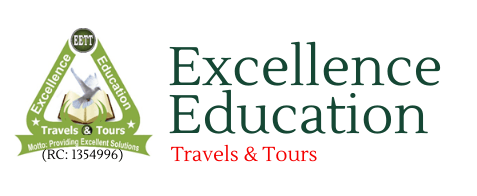Study in Australia

Study in Australia
Education System in Australia
Study in Australia: The education system in Australia is divided into a three-tier structure; combining school education, vocational education & training, and higher education together. Most study programmes offered by Universities in Australia provide courses and conduct research in a wide range of professional and academic disciplines. They award associate diplomas, diplomas, bachelors, masters, and doctoral degrees.
Student Visa in Australia
Types of Student Visa in Australia
If you intend to study for more than three months, you must apply for a student visa and EETT is the best Australian Visa organization in Nigeria.
There are different types of Australian student visas you can choose from depending on your circumstance.
- Schools Student Visa (Subclass 571): Applies to those of you who intend to study in a primary or secondary school or are on a student exchange programmes.
- Vocation Education and Training Student Visa (Subclass 572): Applies to students pursuing a diploma, advanced diploma or certificate through a publicly funded Technical and Further Education College (TAFE) or a private college.
- Higher Education Student Visa (Subclass 573): Applies to those seeking a tertiary qualification from a university, such as a bachelor degree, graduate diploma, or a graduate certificate.
- Master’s and Doctorate Student Visa (Subclass 574): For a postgraduate qualification, such as a masters or doctorate degree.
- Non-Award Foundation Student Visa (Subclass 575): For a foundation course which does not include any formal educational prerequisites and is one which will not lead to the award of a formal degree or diploma.
- Independent English Language Intensive Courses for Overseas Students (ELICOS) Student Visa (Subclass 570): This student visa applies to those students intending to study only English. Students who are studying English as a prerequisite to other courses need to apply under the other visa subclass to which those courses relate.
Permission to work in Australia
As per the Australian student visa policy, all initial student visas granted do not give the visa holder permission to work in Australia. Students who study abroad in Australia and their dependants will only be able to apply for a student visa with work rights after they arrive in Australia and the student has started his/her course of study. Usually, under the regulations of student visa, students and their dependants are limited to 20 hours of work per week while the student’s course of study or training is in session. Students may work full-time during holiday periods. However for masters and doctorate students, the dependents can have unlimited work rights after the principal student visa holder has commenced his or her course in Australia.
Conditions for applying for a visa
As a student visa applicant, you must fulfil the following requirements:
- An Offer of Acceptance: Before a student can apply for a student visa, a valid offer letter from a CRICOS registered Australian institute is required.
- English Proficiency: An IELTS score is a mandatory requirement and evidence of this must be included at the time of application for the student visa. The TOEFL exam is not accepted.
- Financial Capacity: Student visas are granted when a student can prove that they have adequate funds to support themselves in Australia, pay for their tuition and care for dependant family members included on the visa.
- Work Permit Rules: As a student in Australia, you will only have a limited working allowance on your student visa. Therefore adequate funding to pay for living expenses and tuition are important and must be evidenced to gain the student visa. If you take time off from study to work, you will fall below full-time study levels, exceed your work allowance on the student visa, or will fail academically. Any of these things can lead to your student visa cancellation.
- Bonafides: In order to get a student visa the student needs to submit their past academic records for verification as well as a statement of purpose for undertaking the desired course.
- Health cover: Because Medicare, the Australian national health system, is not available to overseas students under student visa, you must maintain your Overseas Student Health (OSHC) cover while in Australia.
Processing of visa application for Australian Student Visa
The main aspect to gaining an Australian student visa for various Australia study programmes is to obtain an electronic confirmation of enrollment (eCoE) from the university.
Submit the relevant completed application form. This must be signed personally and given with the non-refundable student visa application charge in the form of a demand draft in favour of the Australian High Commission – Nigeria.
Provide an ‘Offer of a place in a course’ letter from your education provider to the visa processing office.
Wait patiently for approximately 2-3 weeks. If you meet the basic requirements you will be issued a preliminary student visa assessment (PVA) and further steps will be directed. After you receive your PVA, you will be advised to undergo a medical check-up from a prescribed doctor of the High Commission. You are also required to pay for the first semester tuition fees and the OSHC premiums after getting the PVA.
On receipt of payment, the institution issues an electronic confirmation of enrolment (eCOE), which comes directly to the Visa Office. You are now required to submit your passport to the visa office to get your student visa.
Mandatory documents
- Additional information sheet
- Application form
- Letter of offer from the institution (original and photocopy) stating the course, fee structure and the duration
- Valid passport
- Four passport photographs
- A statement of purpose
- Other forms– supplementary Questionnaire, details of relatives
- Guardianship form (if applicable)
- Academic Documents (original and photocopies)
- IELTS test result
- Work experience documents (original and photocopy)
- Financial documents (originals and photocopies)














